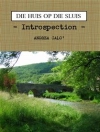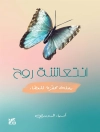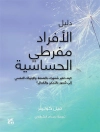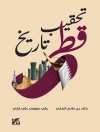Discover the stories behind Jane Goodall’s visionary approach to community-led conservation.
You know of Jane Goodall’s work with wild chimpanzees and her lifelong career advocating for environmental justice. But just as transformative is her work empowering local communities that live on the edge of human settlement to act to protect their natural resources—or to risk losing them forever.
Local Voices, Local Choices: The Tacare Approach to Community-Led Conservation is the story of the Jane Goodall Institute’s holistic approach to conservation, which puts the local people in charge of preserving their surrounding ecosystems. Rather than conservationists leading the effort and imposing their solutions, local communities that live in the affected regions make their own decisions. Working with science and technology and with the support of conservationists, these communities grow to understand their human impact on the environment. By choosing to adopt sustainable livelihoods, they decide their own path into the future, finding ways to balance their environmental impact with their communities’ needs.
Story by story, Local Voices, Local Choices brings readers into the diverse perspectives behind this approach to community-driven conservation—not only those of JGI staff and program partners but also, and equally, those of the local people who lead these initiatives.
Read about:
- The origins of the Tacare approach, originally designed as a 1994 reforestation project with an abbreviation pronounced “ta-CAR-reh”
- A retired village member keeping the knowledge of medicinal plants alive in his community
- Spiritual and cultural story-holders who are vital to the recording and preservation of their traditional ecological knowledge
- Local people participating as forest monitors, village health workers, beekeepers, small-business owners, and educators of the next generation
- Former poachers turned advocates for sustainable land management
Written for conservationists, fans of Jane Goodall, and readers interested in environmental issues, Local Voices, Local Choices is a vibrant expression of Jane Goodall’s vision and her hope that the Tacare approach will be understood and adopted wherever there is a need for genuine community-driven conservation.
Local voices matter, and their choices can make all the difference for generations to come.
Inhoudsopgave
Foreword by Jack Dangermond
Introduction: The birth of Tacare by Jane Goodall
The Jane Goodall Institute’s method of community-led conservation.
1 The human-made island: Mzee Jumanne Kikwale meets Jane Goodall at an impressionable age. Dr. Anthony Collins arrives to study Gombe’s baboons.
2 Paradigms and problems: Mzee Jumanne Kikwale moves back to Kigoma to teach the next generation about trees. Dr. Anthony Collins recalls Tacare’s earliest steps — and missteps.
3 1994: Understanding deforestation: George Strunden and the genesis of TACARE.
4 1994: The forester: Mzee Aristides Kashula sees both the forests and the trees.
5 Cultivating a holistic approach: Mzee Emmanuel Mtiti dances with donors.
6 Creating a common language: Dr. Lilian Pintea uses mapping technologies to develop a dialogue between communities and conservationists.
7 Local ambassadors: Learning from and speaking for the chimps: Gabo Paulo, Eslom Mpongo, Hamisi Mkono, Fatuma Kifumu, and Yahaya Almas reflect on decades of chimp observation at Gombe.
8 A confluence of disciplines: Dr. Shadrack Kamenya explains why indigenous researchers are essential to outreach efforts. Dr. Deus Mjungu dedicates his career to creating habitat corridors for endangered wildlife.
9 The cycles of old and new: Japhet Mwanang’ombe educates and inspires the younger generation. Hamisi Matama preserves the traditional ecological knowledge his mother taught him.
10 Seeking homeostasis: KANYACODA, VHTs, PFOs, KIKACODA: Working toward human and ecological health in Uganda.
11 The fatal interface KACODA, Uganda: Finding successful strategies to reduce human/chimp conflict.
12 From the cloud to the ground: Ugandan Wildlife Authority: Obed Kareebi, Frank Sarube, and
Philemon Tumwebaze on poverty, technology, and conservation.
13 Outreach through fire: Dario Merlo hears Jane’s words of hope as bombs fall on Goma.
14 The banks and the bees: Phoebe Samwel links microcredit to women’s empowerment Kapeeka Integrated Community Development Association (KICODA) harvests honey — and venom.
15 Changing the retirement plan: Mama Sonja manages difficult conversations about choice.
16 Of women champions: Alice Macharia paves the way for African women in conservation. Yakaka Saweya explains why so many village girls don’t complete their education.
17 The cycle of regeneration: Alice Macharia is in it for the long term — and the short term.
18 A “talking office” with maps: Joseline Nyangoma, Hoima district natural resources officer, wants
science to tell a story.
19 People, pixels, and puff adders: Dr. Lilian Pintea contemplates different ways of knowing.
Conclusion
Over de auteur
The Jane Goodall Institute (JGI) is a global, community-centered conservation organization founded in 1977 that advances the vision and work of Dr. Jane Goodall in over 30 countries around the world. We aim to understand and protect chimpanzees, other apes and their habitats, and empower people to be compassionate citizens in order to inspire conservation of the natural world we all share. JGI uses research, collaboration with local communities, best-in-class animal welfare standards, and the innovative use of science and technology to inspire hope and transform it into action for the common good. Through our Roots & Shoots program for young people of all ages, now active in over 50 countries around the world, JGI is creating an informed and compassionate critical mass of people who will help to create a better world for people, other animals and our shared environment.












